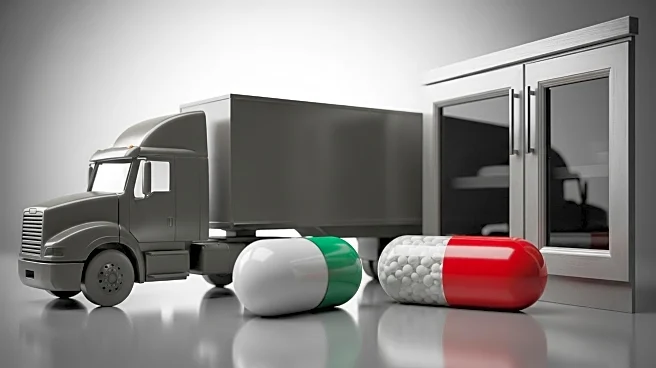What's Happening?
President Donald Trump announced a new series of tariffs, including a 100% tariff on imported branded drugs, a 25% tariff on heavy-duty trucks, and a 50% tariff on kitchen cabinets. These measures are set to take effect on October 1. The tariffs are part of Trump's strategy to protect American manufacturers from what he describes as 'unfair outside competition' and to address the 'flooding' of these products into the U.S. market. The U.S. Chamber of Commerce has expressed opposition to these tariffs, highlighting that many of the top import sources are allied countries posing no threat to U.S. national security.
Why It's Important?
The imposition of these tariffs could have significant implications for various sectors of the U.S. economy. For the pharmaceutical industry, the 100% tariff on branded drugs could lead to increased costs for consumers and healthcare providers, potentially impacting access to essential medications. The tariffs on heavy trucks and kitchen cabinets may increase production costs for U.S. manufacturers who rely on imported parts, potentially leading to higher prices for consumers. Additionally, these tariffs could strain trade relations with key allies and trading partners, complicating international economic diplomacy.
What's Next?
The tariffs are scheduled to take effect on October 1, and their implementation may prompt reactions from affected industries and international trading partners. Companies may seek to negotiate exemptions or adjust their supply chains to mitigate the impact. The U.S. Chamber of Commerce and other business groups may continue to lobby against the tariffs, emphasizing the potential negative effects on the economy. The situation could also lead to further discussions between the U.S. and its trading partners to address trade imbalances and explore alternative solutions.









